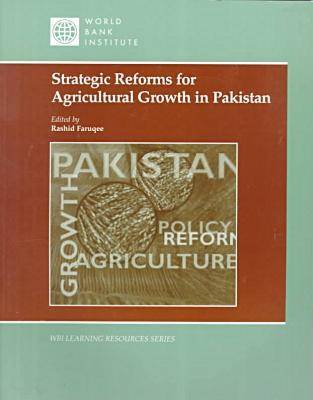'Future prospects for the agricultural sector in Pakistan depend on its ability to increase output and income of producers.' Agriculture remains the backbone of the Pakistani economy, employing more than half the labor force and accounting for 70 per cent of export revenues. However, agriculture faces two sets of constraints in Pakistan: resource constraints and policy distortions. This volume deals with the major resource and policy constraints currently facing Pakistani agriculture. Government involvement in Pakistan's agricultural sector has been excessive and often inappropriate, and agricultural reforms are a key part of the adjustment program underway in Pakistan. Some of the principal goals of the program are to ensure a sound and sustainable macroeconomic framework with sustainable internal and external balances, to liberalize trade, privatize government-owned enterprises, deregulate and eliminate public sector monopolies, and to reform the financial sector. The agricultural sector can contribute to the Pakistani economy and to the adjustment program. Agriculture has the potential to make a larger contribution to total revenue and plays an important role in external balances. A favorable climate gives Pakistan a strong comparative advantage in horticulture, as indicated by the rapid growth of the subsector in the absence of policy interventions.
- ISBN13 9780821343364
- Publish Date 1 May 1999
- Publish Status Active
- Publish Country US
- Imprint World Bank Publications
- Edition illustrated Edition
- Format Hardcover
- Pages 153
- Language English
